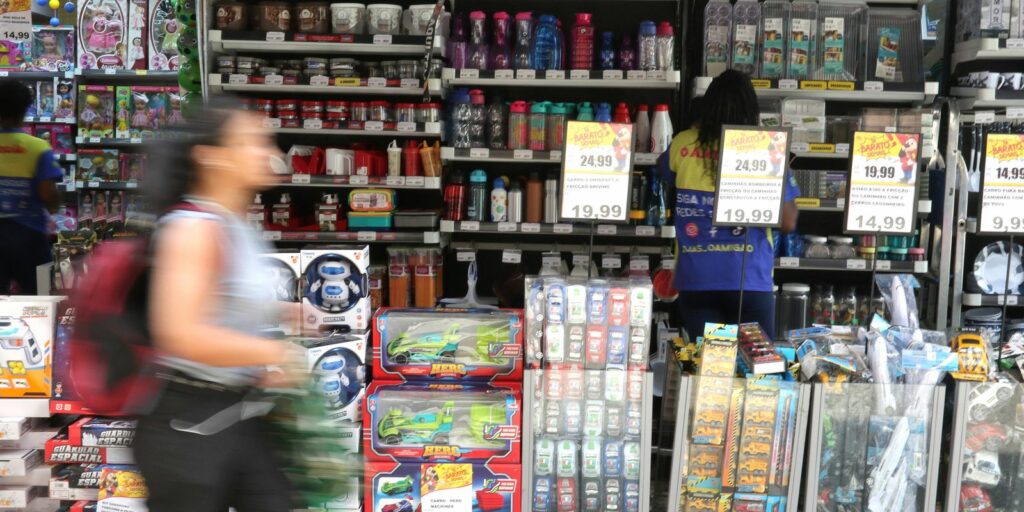the music producer marlku ensures that the “genres are just an outer shell” and that “art should reflect the era in which it was made”when talking about “555”, his debut album, where references and new talents of Argentine and Spanish trap such as Rei, Bhavi, Asan, Dani Ribba, Bon Calso and Leïti Sene lend their voices and converge to “raise the vibe” of a work that, in addition to hoisting the new forms of work within the studio, greatly contributes to making his trade more visible.
A little less than a month after editing his first full-length, the producer released a “deluxe” version of that work in December: the “555+” that adds the Uruguayan Knak to “La 10”, where the emerging Frozouda was already present. -the one chosen by Duki to open his historical shows in Vélez-, another referent of the oriental scene such as Falke 912 in the new “Off White” and the New Yorker Nessly who connects his Anglo-Saxon bars with those of the Argentine Seven Kayne in “Quantum”. .
In dialogue with Télam, the producer behind “Fernet” (Rei and Quevedo), “Sexy” (Eich, Duki and Khea), “Tu Luna” (Homer El Mero Mero, FMK and Tiago PZK), “Halloween” (Mesita and Dillom) and who collaborated with Duki in the production of three songs from “Desde el Fin del Mundo” maintains that there is no better way to “discovering an artist” than through a full-length album: “When I discover an artist, my greatest hope is that they have an album so that I can tackle it in its entirety, because if they only have two or three singles, they drop me”said.
“I wanted to make songs that raised the vibe, which is what ended up happening to me when I heard the finished material. There is a search for emotion that positively conditions the artist’s work quite a bit when it comes to writing”
“I began to feel the need to make a record because of the relationship I always had with music as a listener, but also because I felt that there was no producer in Argentina, at least that I knew of, who had done a project like this. I called some of the friends I had worked with and others found out and wanted to be there. There was no guideline on how to do it, it was how we usually work: most of the time in a session there is a song or two”summarized.
The album, which started with “Presupuesto y Melodía” with Bhavi, found its definitive color from experimenting with a bass synthesizer that, in the end, he ended up “using for everything”,
“The very limitation of the instrument made me find things for which it was not made. It made the search find unknown places. That gave me enormous freedom by having a whole place to discover”explained about those sounds that guided him in his search and defined the dreamlike and spatial character of this trap repertoire.
-Do you feel that the album comes to establish a position on the current musical scene?
-Yes, because there is something nostalgic and going against the current. Today if you make a video it has to be in a certain way or say such and such a thing. And there is also the culture of the single that forces us to optimize all the resources with a more commercial orientation, if you will. There is a reality: the songs do not have the same scope when you take them out on a record, but I decided to “sacrifice” that and make a record like the ones I found when I went to the record store and bought records without knowing what they contained. I still remember those record stores, full of people, that had machines that read the barcodes of the albums and you could listen to them there. Also that the local guy looks at you badly because you’ve been there breaking your balls for half an hour. I remember that a lot, because that was my approach to music as a listener.
-What was the feeling you were pursuing when defining the concept? And how much did the guests contribute to that search?
– I wanted to make songs that raised the vibe, which is what ended up happening to me when I heard the finished material. There is a search for emotion that positively conditions the artist’s work quite a bit when it comes to writing. It was quite fine conceptual work in the sense that I didn’t tell the kids what I wanted them to talk about. In some cases they listened to what I already had and were inspired by it on a lyrical level, but I never told them what they could or couldn’t talk about. My job was to put together a more or less conceptual album based on the feeling that the ‘track’ or the ‘beat’ provoked and give one hundred percent freedom so that they could show off being faithful to their style. It was kind of crazy because without telling them anything, the album ended up being connected at various points at a lyrical and emotional level with what the artists wanted to convey.

-How does your approach as a producer change depending on the urban genre with which you have to work?
– For me genres are just the outer shell; how it is presented But actually it’s the same for me because I try not to forget that music is art. So in the studio there is always the premise of what are you counting, what are you saying, if you are bringing a message or filling a space. That is the most important thing for me, it is something that I ask myself all the time and that I sometimes even question myself. “Why am I doing this? Does it make any sense? Is it a new message that I bring?” I try to have that search as an artist and a producer. I like that it is also noticeable in the song that we had a good time in the studio and we feel good, because when you don’t have a good time in a session it shows. I try to be subtle with the artists; just flow and create the conditions for them to feel comfortable and good.
-What is your view on the moment that the trap scene went through in 2022?
-It already happened with rock: until The Beatles came out it was a more alternative and underground movement. The old people looked at their children as if they were crazy. Then the bands appeared and artists began to emerge who were gigantic and filled stadiums. And the same thing happened to trap, which, like rock, is not a genre that emerged here either. At first, they looked at us with the face of ‘these crazy people, what’s up? What do they flash?’, but later the genre adapted quite a bit to our way of speaking and to who we are. Hip-hop had already laid a foundation on which to grow. That’s why the fight between rap and trap is terribly stupid, because all music paves the way for itself at the genre level. The good and healthy thing is to recognize that rock somehow paved the way for trap, as rhythm & blues did for rock & roll at the time. Such is the history of art and music. Although it is true that when making music I try not to think about anything; that remains in the subconscious and that’s it. I am aware that for me art has to reflect the era in which it was made.
“There is a reality: the songs do not have the same scope when you take them out on a record, but I decided to ‘sacrifice’ that and make a record like the ones I found when I went to the record store and bought records without knowing what they contained”
-What is it like to work for an artist and share that role with other producers at the same time? How was the experience for you?
-Last year I went to Miami for the first time and learned a lot about how to work there. I got a lot of ideas, especially regarding working with composers. It is something that I love, it is how I would like to work here. Little by little I am beginning to implement it: calling composers for the session, adding other producers seems to me to enrich and make better things come out. There I was in a place that was an entire block, with ten recording studios, basketball courts, and even a printing press for merchandising. It was all crazy: suddenly you get into a session with an artist and suddenly a composer comes in, listens to you and throws data at you. It is a bit what happens unintentionally here, but much more professionalized. There are composers who are there all working hours and contribute to everything that happens inside the place.
















